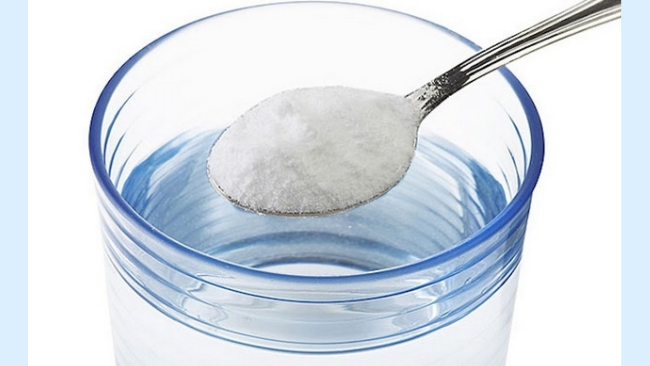Atmospheric pollution occurs when the emission of substances into the atmosphere changes the composition of the air, causing environmental imbalances and harming the health of living beings.
Also called air pollution, this type of pollution is one of the most damaging to human beings and ecosystems.
One of the main causes of air pollution is burning fossil fuels, such as coal and oil. This type of pollution began to intensify in the 19th century, after the Industrial Revolution.
According to the World Health Organization, currently, about 7 million premature deaths happen every year as a result of air pollution.
Air pollution also contributes to the aggravation of the greenhouse effect and global warming, which destabilize the climate and cause consequences that can be disastrous for life on Earth.

Causes of air pollution
air pollution can be caused by natural phenomena and by the action of man.
Among the natural causes of air pollution, we can mention the gases emitted in volcanic eruptions, in the decomposition of organic matter (caused by fungi and bacteria), in the release of methane from the digestive system of animals and dust from deserts.
In quantity, however, these emissions represent a very small part compared to the total current air pollution.
Human activities account for most of the pollution and are growing at alarming levels, causing countless damages to living beings and the balance of nature.
Among the main actions that cause atmospheric pollution are: the burning of fossil fuels to generate energy for industries and as fuel in automobiles.
The combustion of other materials such as wood and biomass also releases polluting gases. The burning of forests for pasture and agriculture, for example, is one of the biggest causes of the release of polluting gases in Brazil.
In addition, other industrial activities such as steel and mining are also responsible for emitting pollutants and contaminating the atmospheric air.
Main air pollutants
- carbon dioxide (CO2): one of the main pollutant gases, is emitted into the atmosphere from the burning of fossil fuels. Also called carbon dioxide, is the main gas responsible for the intensification of the greenhouse effect and global warming.
- Carbon monoxide (CO): also emitted from the burning of fossil fuels, this gas is extremely toxic and, depending on the quantity inhaled, can lead to death by suffocation.
- Sulfur dioxide (SO2): released by industries, by burning fossil fuels and by the eruption of volcanoes, this gas is one of those responsible for acid rain. In humans, this gas can cause irritation, coughing and nausea.
- Nitrogen dioxide (NO2): Released from burning automobile fuels, it is a very toxic gas, can cause irritation, allergies and, in more severe cases, respiratory failure and bleeding. Along with sulfur dioxide, it is responsible for acid rain.
- Particulate matter: small solid and liquid particles present in the air. When inhaled these particles can cause respiratory and cardiac problems.
- Ozone (03): Ozone is an extremely important gas for life on Earth, it is the ozone layer that protects us from the sun's ultraviolet rays. However, when closer to the Earth's surface, it is harmful to nature and humans. Ozone can affect the metabolism of plants and cause irritation to mucous membranes.
Consequences of air pollution
The consequences of air pollution for life on the planet are extremely dangerous. In addition to the diseases caused in living beings, pollution alters the entire balance of the Earth's ecosystem.
As a result of high pollution rates in recent decades, the world is undergoing a process of climate changes, which are compromising the quality of people's lives.
greenhouse effect and global warming
This is one of the most worrying consequences of pollution and has been a matter of great concern to the scientific community and countries.
The greenhouse effect is a natural process that keeps the temperature on planet Earth at levels suitable for our survival.
However, mainly due to the burning of fossil fuels, human beings are emitting a very large amount of greenhouse gases into the atmosphere.
The change in the amount of these gases in the atmosphere is responsible for the intensification of global warming, which can lead to melting glaciers, disappearance of coastal cities and imbalance in ecosystems.
Acid rain
Acid rain happens when elements such as sulfur dioxide (SO2) and nitrous dioxide (NO2) interact with water vapor and form acids.
When it precipitates, the rainwater has high levels of acid, which brings countless environmental damages, such as soil contamination, the destruction of crops and the contamination of animals.
In addition, acid rain can corrode historic buildings and monuments.
thermal inversion
Thermal inversion usually happens in large urban centers, where there is a high concentration of atmospheric pollutants and usually happens more frequently during the winter.
In this phenomenon, a layer of warm air overlaps a layer of cold air due to the accumulation of pollutants. The cold layer cannot circulate upwards and the polluting gases are trapped close to the atmospheric surface.
These gases close to the surface can cause intoxication, respiratory illness and mucosal irritation.
damage to health
Breathing is the most fundamental action for sustaining life, which is why air pollution can be so dangerous and harmful to living beings.
Among the health problems caused by air pollution, respiratory diseases, such as asthma and bronchitis, pneumonia, coughs, irritations and allergies, stand out.
In more serious cases, air pollution can cause damage to the immune, nervous and reproductive systems, hypertension, cancer and even death.
Air pollution and the big smoke
One of the most serious cases of air pollution happened in 1952 in London and was known as big smoke.
On that occasion, the release of sulfur from the burning of coal in industries, added to adverse weather conditions, created a great fog of pollution over the city.
It is estimated that during that week 4,000 people died from the smoke. Thousands more people died or became sick after the event.
Get to know the others too types of pollution.

